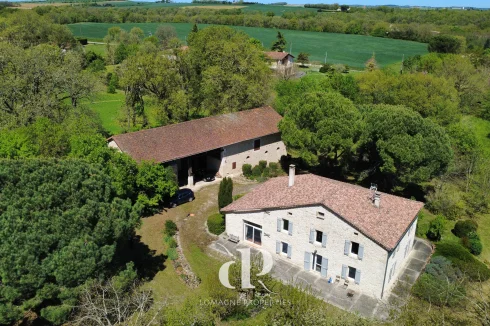A ruling in the French courts opens the way for more claims to be made over the liability of many international owners of French property to the social charges.
We have published numerous articles in the past on the legal dispute over the liability of non-resident EEA nationals and residents of France to the social charges, the prélèvements sociaux.
In 2015, following the decision “De Ruyter” from the European court of justice, the supreme French administrative court, the Conseil d’Etat, confirmed that the imposition of social charges on those not in the French social security system was illegal, a decision that opened the way for tens of thousands of tax refunds to be made.
The ruling applied to all investment income earned in France, notably rental income, as well as capital gains that arise in France.
However, in 2015 the government changed the law, so that for income earned in 2015 and capital gains obtained from 2016, the social charges were once again imposed.
This was achieved by moving the allocation of receipts from social charges from the general social security budget to different social security funds, where the benefits arising such funds were non-contributory, and so compatible with European law.
The reflex by the government was not unexpected, and it is of interest to note that they did not appear to be entirely sure it is legally watertight, with Christian Eckert, the Minister of the Budget, having candidly stating at the time, "
Dire qu’il est d’une solidité juridique totale serait exagéré."
That lack of certainty has now been confirmed in a decision of the Court of Appeal sitting in Nancy, who have ruled that the major part (14.05%) of the social charges was to be immediately reimbursed to the taxpayer.
The judges in this case considered that, notwithstanding the change made by the government, the proceeds of the charges fell within European Regulation (EC) No 883/2004 and are therefore governed by the principle of unity of the legislation provided for by this text. That means that the taxpayer cannot be subject to social security contributions in another state than the one he depends on for his social security.
Not surprisingly the government have appealed the decision to the Conseil d’Etat, on 31st July, 2018, a hearing that may well not be heard until 2019.
However, for those who have paid social security contributions in 2015 and 2016 for which they do not consider they are liable it is imperative that a claim is made before the end of the year. Claims can also be later made for 2018.
For the British citizens who have paid social security contributions in 2017 and 2018 it is highly recommended to file the claim up before the official date of the Brexit planned on the 29th march 2019.
It is possible for individuals to make a claim direct to the tax office, but if you seek assistance, then most of the legal cases brought in this dispute have been made by avocats Goffin Van Aken, a bi-lingual cabinet based in Strasbourg, who have a page on their website where you can fill in an English language
on-line form to make a claim with them.
As well as non-residents, residents of France who are most likely to be interested are retired EEA expatriates in France who obtain their health cover through an S1 certificate of exemption, meaning that they are technically not in the French social security system for their health cover. They obtain exemption on their pension income, but not on investment or rental income.
Others who might be interested in the judgement are those who are resident in France and who are privately insured for their health cover. This, for instance, might include early retirees who have been unable to obtain access to the French health system. However, as those with private cover may not in a social security system of another Member State there is no guarantee that such applications would be eligible for a refund.
Those who are residing in France, but who pay social security contributions in another country of Europe (European union or Switzerland) where they are working (active cross-border) may also feel they have a claim for a refund of social charges; all incomes from their assets are concerned (lifetime annuity, rental revenues, capital gains from the sale of shares, capital gains on real estate, income from other investments etc).
In addition, those who sold their French property in 2016, 2017 or 2018 would also be eligible for a refund.
Related Reading:





